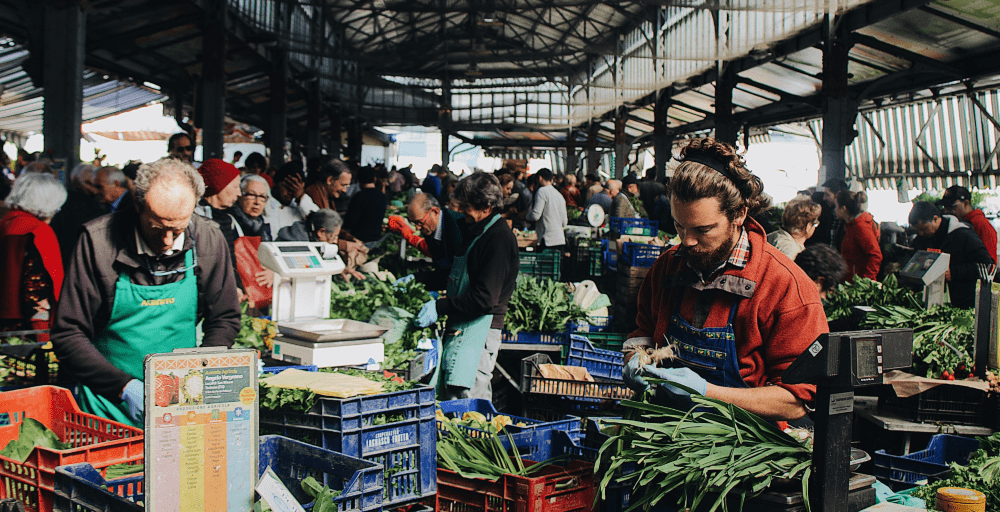
Seven Ways You Can Survive A Nutritious Diet Without Breaking Your Bank

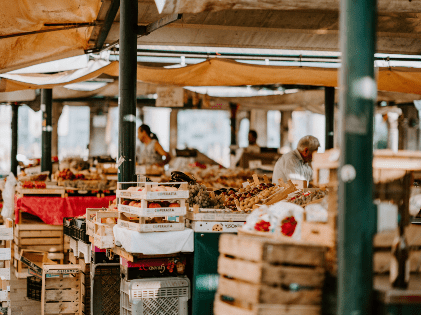 It’s a common belief that healthy eating comes with a greater price tag. On the contrary, it is quite easy to economize if you go for a healthy diet. “Good food doesn’t come cheap” is a popular myth and you can actually chalk out a proper meal plan for yourself, based on your daily food habits and on a budget. Following are some suggestions on how to have nutritious food without pinching a hole in your pocket.
It’s a common belief that healthy eating comes with a greater price tag. On the contrary, it is quite easy to economize if you go for a healthy diet. “Good food doesn’t come cheap” is a popular myth and you can actually chalk out a proper meal plan for yourself, based on your daily food habits and on a budget. Following are some suggestions on how to have nutritious food without pinching a hole in your pocket.
Shop In The Local Farmer’s Market
This way, you can actually play a big part in enhancing the local economy. When you buy from a local farmer or greengrocer, you have the advantage of consuming seasonal products. The veggies and the fruits that are sold are usually seasonal and you consume them fresh and at a much cheaper price. Another plus, consumption of non-seasonal products ought to be a tad expensive, as they need to be imported. So say ‘Hi’ to your local farmer and add a bunch of nutritious stuff to your meal.
Avoid Eating Out
It may seem suitable and appropriate to dine out at times, but, eating out burns a hole in your pocket and is much more expensive than making a meal at home. Cooking has certain advantages to benefit you in the long run. Try to put a brake on eating or dining out, and carry your lunch box to work. Of course, you can eat out but keep this habit aside for your special moments and occasions. It won’t hurt your pocket badly and you can also have your daily dose of nutrition if you cook your meal at home.
Stock Up Your Kitchen Essentials
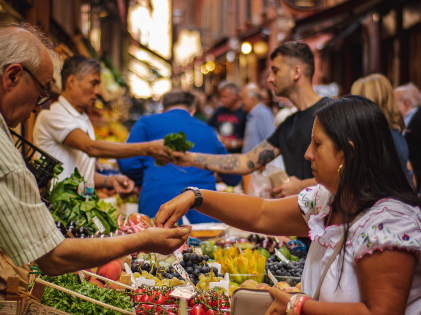 You can save your pennies if you make a stock of all the necessary kitchen items that your pantry needs. Your everyday rice, wheat, flour, oats, lentils, chickpeas are not expensive at all, and they last quite long. These items add on to your food’s nutritional value too and you can make a grocery list of healthy food items before hitting the supermarket.
You can save your pennies if you make a stock of all the necessary kitchen items that your pantry needs. Your everyday rice, wheat, flour, oats, lentils, chickpeas are not expensive at all, and they last quite long. These items add on to your food’s nutritional value too and you can make a grocery list of healthy food items before hitting the supermarket.
Buy More To Save More
When you shop your staple products, try to buy them in large quantities, if possible. Grains, cereals, legumes don’t rot or get spoiled if stored for a long time and should be purchased in bulk. To suit your needs, certain shops give out goods in bulk and you can also buy the exact amount you need.
Plan Your Meals Daily
Wasting food is a strict no-no. It has a huge effect on the environment. It affects your bank balance too. You need to store or stack up food if you don’t want to ruin your finances. You also have the option to chalk out a proper meal planning. Try to buy only what you need and abide by your list of necessary grocery.
Start Using The Freezer
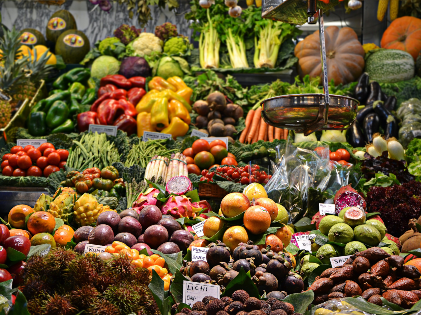 Refrigerating your food is an easy and effective way to store your daily stuff and helps in avoiding food waste. It is always better if you freeze up your leftover chicken or veggies, and store them for future use. You can also cook up a meal, divide into two, store one half in the freezer, and consume it the next day. It’s that simple! When you are not in the mood to enter the kitchen or cook something, just take out the rice from the freezer, add some veggies up with it and your meal is ready! Throwing out or wasting food doesn’t make any sense. So, before the leftovers get rotten, just stock them up in your freezer for future use. Preventing food waste is a nice way to put a stop to money waste.
Refrigerating your food is an easy and effective way to store your daily stuff and helps in avoiding food waste. It is always better if you freeze up your leftover chicken or veggies, and store them for future use. You can also cook up a meal, divide into two, store one half in the freezer, and consume it the next day. It’s that simple! When you are not in the mood to enter the kitchen or cook something, just take out the rice from the freezer, add some veggies up with it and your meal is ready! Throwing out or wasting food doesn’t make any sense. So, before the leftovers get rotten, just stock them up in your freezer for future use. Preventing food waste is a nice way to put a stop to money waste.
Fill Your Plate Up With Green Veggies
Though you love to binge on chicken, beef and fish dishes and highly relish them, you must not make it a daily habit. Look after your protein intake by filling your plate up with green vegetables and some complex carbohydrates can work in your favor too.
Remember that food waste leads to a waste of money too. Throwing away food or leftovers should be completely avoided and must be stored up so you can eat the food later. Also, eating out regularly is unhealthy and costly. Better to avoid that too. A sugar-free diet, a well-executed meal plan and proper consumption and usage of food will definitely aid you in leading a healthy life.
More in Diet
-
`
How Breastfeeding Moms Can Sleep Well & Ensure Safer Sleep For Their Babies
Does breastfeeding make you tired? When a mother breastfeeds, her body releases a hormone called oxytocin. This “love hormone” plays a...
September 26, 2024 -
`
Novak Djokovic’s 25th Grand Slam – What to Expect in 2025?
As the tennis season draws to a close, Novak Djokovic faces an unprecedented challenge: ending a year without a Grand Slam...
September 22, 2024 -
`
3 Tips for Rotator Cuff Health to Speed Up Shoulder Recovery
Rotator cuff health tips can help reduce pain and improve mobility after an injury. The rotator cuff is crucial for shoulder...
September 12, 2024 -
`
Christina Aguilera Impresses Fans and Facial Aesthetics Docs With Ultra-Slim & Youthful Look
Christina Aguilera’s weight loss is a hot topic these days, and for good reason. After stepping out of the spotlight for...
September 7, 2024 -
`
Visiting Brussels, Belgium, For the First Time? Here is What You Should See & Do
When exploring the capital of Belgium, you might wonder what the top things to see and do are. This cosmopolitan hub,...
August 28, 2024 -
`
The Pork Adobo Recipe to Take Your Dinner to the Next Level
The pork adobo recipe is a culinary gem that truly showcases the heart of Filipino cuisine. This dish, deeply rooted in...
August 21, 2024 -
`
Can I Shrink My Liver in 2 Days? A Guide to Liver Shrinking Diets
Can I shrink my liver in 2 days? This question is often asked by individuals preparing for weight loss surgery or...
August 16, 2024 -
`
George Conway Weight Loss – How Did He Shed 40 Pounds?
George Conway, the legal eagle turned political commentator, has recently captured the public’s attention for more than his sharp legal mind....
August 5, 2024 -
`
Japan Trip Cost in 2024: A Comprehensive Guide For Beginners
How much would a trip to Japan cost? Well, it is a dream destination for many, but understanding the expenses involved can...
July 31, 2024







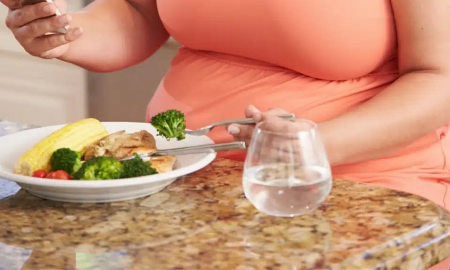


You must be logged in to post a comment Login